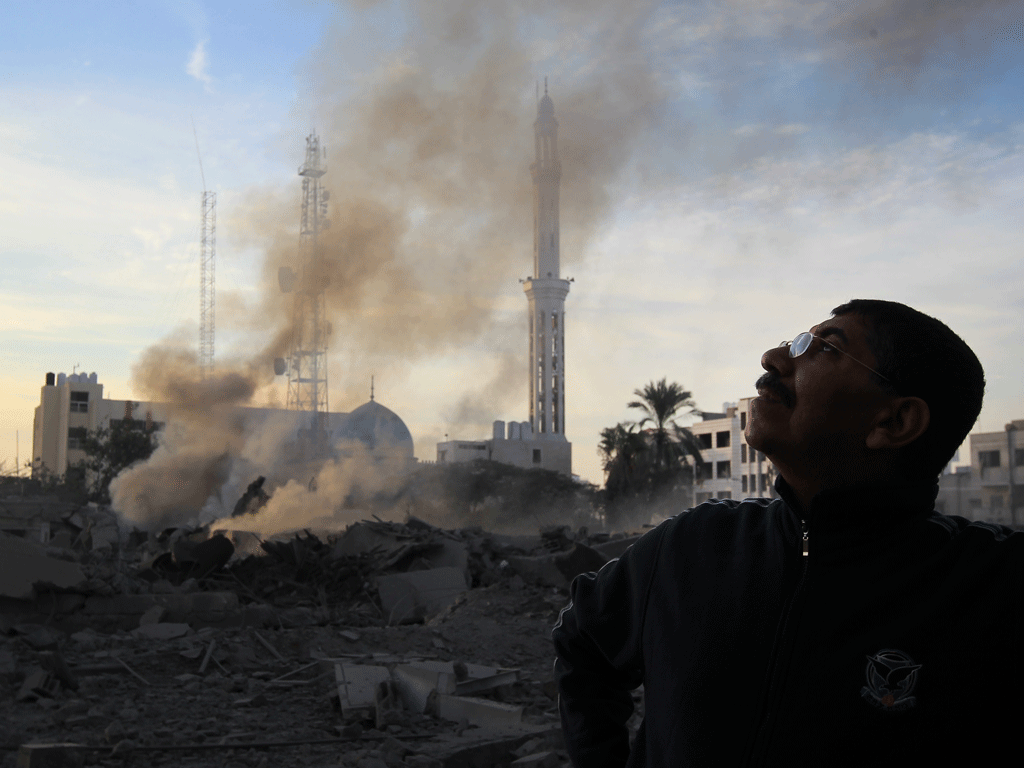Censure for reporter over Gaza tweet sparks BBC rethink over social media
Governing body calls for rethink over use of Twitter but journalists worry about losing credibility

The censure of a senior BBC correspondent over his use of Twitter in covering the Middle East could have a chilling effect on the use of the medium by the organisation's global network of journalists.
The BBC Trust has upheld an accuracy complaint against the respected foreign correspondent Wyre Davies after he tweeted about rocket attacks in Gaza and Israel last November.
Although the Trust praised Davies for "the overall quality and integrity of his reporting across various media" during Israel's Operation Pillar of Defence, it found he had breached accuracy guidelines in a 7.25am tweet, which stated that "In this 'limited operation' at least 13 Palestinians and 3 Israelis have been killed - nearly all civilians. #Gaza". Four of the 13 Palestinians were later identified as civilians, with the others being militants.
As part of the ruling the BBC's governing body called on the BBC to reconsider "the use of Twitter by BBC staff" and "if necessary" issue new guidance. It called on the organisation to think about how it could do more to include attribution of sources, even with the 140-character limitation of Twitter, and to look at correcting inaccuracies in previous tweets.
A Trust spokesperson said: “The Trust has not asked the Executive to carry out a formal review of its Twitter policy but rather highlighted that the current guidance of its use by BBC staff should be looked at and if necessary additional guidance be issued.”
But BBC journalists privately admitted that the finding could inhibit their future use of Twitter despite the BBC Trust Editorial Standards Committee's acknowledgement that "the BBC would not remain as the most credible and trusted news provider in the UK if it did not use social media as well as traditional broadcasting".
In his response to the complaint, Davies - who tweeted 24 times that day on the developing situation in Gaza - noted that the number of casualties in the conflict had risen quickly and that "the 'fog of war' is also something that armchair critics at home rarely experience - we were not covering the State opening of Parliament but a brutal and confusing conflict".
The Trust also considered a submission from Chris Hamilton, the BBC's Social Media Editor for Journalism, who said Twitter was "not like live broadcast" and that Davies's tweet should not be seen in isolation but be considered in the broader context of his "subsequent tweets" and the BBC's wider coverage.
"To uphold the complaint would suggest that for all tweeting, from both individuals and 'branded' accounts (ie @BBCBreaking etc), we must continuously be deleting tweets sent in good faith at the time and clarifying them with new tweets, potentially long after the event, as new information emerges on any given news story," he said. "It even suggests we should do the same for news stories in our website archive."
Hamilton told The Independent that he hoped that the ruling would not discourage BBC journalists from continuing to use the medium.
BBC coverage of the Israeli-Palestinian conflict is the subject of intense scrutiny and frequent complaints from both sides, and the task of its journalists has been made even harder by the demands of online news media. Jeremy Bowen, the BBC Middle East editor, was found by the BBC Trust to have breached impartiality guidelines in a 2008 article written for the BBC website.
In a further finding, the Trust ruled that a limerick read out by Stephen Fry on the quiz show "QI" about a chaplain's "desire" for a choirboy, was "at the margins of acceptability", even though it was broadcast before a "Newsnight" programme on the Jimmy Savile scandal.
Join our commenting forum
Join thought-provoking conversations, follow other Independent readers and see their replies
Comments